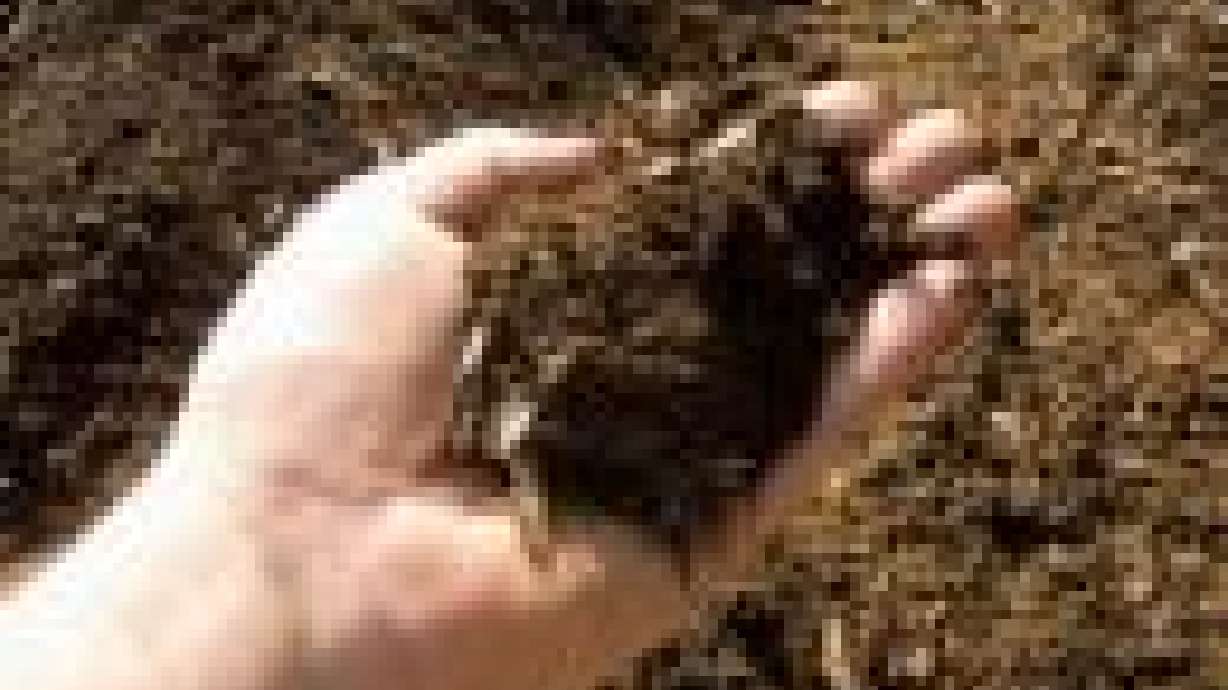Estimated read time: 2-3 minutes
This archived news story is available only for your personal, non-commercial use. Information in the story may be outdated or superseded by additional information. Reading or replaying the story in its archived form does not constitute a republication of the story.
One mistake commonly made by beginning gardeners is trying to work the soil too soon. Test your soil to find if it is ready to work by using the squeeze test. Dig down to the depth you are going to till or dig soil and take handful of the soil, squeeze it together and toss it gently in the air. If it remains in a ball it is still too wet. If it crumbles freely you can go ahead and work the soil. Obviously sandy soils will be ready before heavier clay-type soils. In fact, in my own garden, it generally is not the weather that determines when I can plant. Most years I need to wait until the soil finally dries out enough that it can be tilled.
Working the soil when it is too wet will compact it and drive the oxygen out of the soil. Oxygen is vital to the plant roots and a good garden soil will contain 25 percent air. If it contains less than that due to compaction, plants will not grow as well. Many gardeners get around this soil-preparation problem by tilling in the fall. Then only a light raking is needed in the spring to prepare the soil for planting.
If you didn't add sufficient organic matter to your garden last year, add it as soon as the soil dries out. Organic matter improves soil structure and drainage and makes earlier planting possible. Start accumulating the organic matter right now. If you have compost, that makes an ideal soil amendment. Piles of leaves that have overwintered will also add tilth to the soil although they don't have much in the way of nutrition.
If you have a stable in your area, look for bedding materials from that stable. Sawdust, wood chips or shavings work very well because they don't have weed seeds in them. Unfortunately, animal manure may have large amounts of weed seeds which will increase your problems and time you must spend in the garden to overcome these problems.
Nurseries have many different kinds of organic matter available either in bulk or in bags. Look for coarse textured materials for heavy clay soils. Peat moss holds water even better than clay so is not recommended on these soils. Keep in mind that a two-cubic-foot bag doesn't add much to the soil. It will take over 75 two-cubic-foot bags of steer manure or other composted materials to cover a 1,000 square foot garden two inches deep. It generally takes at least that much organic matter to measurably improve the soil.
When adding most soil amendments you should also add a nitrogen fertilizer to help overcome the effects of the decomposing plant materials. Otherwise, young growing plants will be robbed of nitrogen. At about one pound of ammonium sulfate or similar material for each 1 inch of organic matter per square feet. This takes care of breaking down this organic matter. You will need to supply additional fertilizer when your plants are planted.








